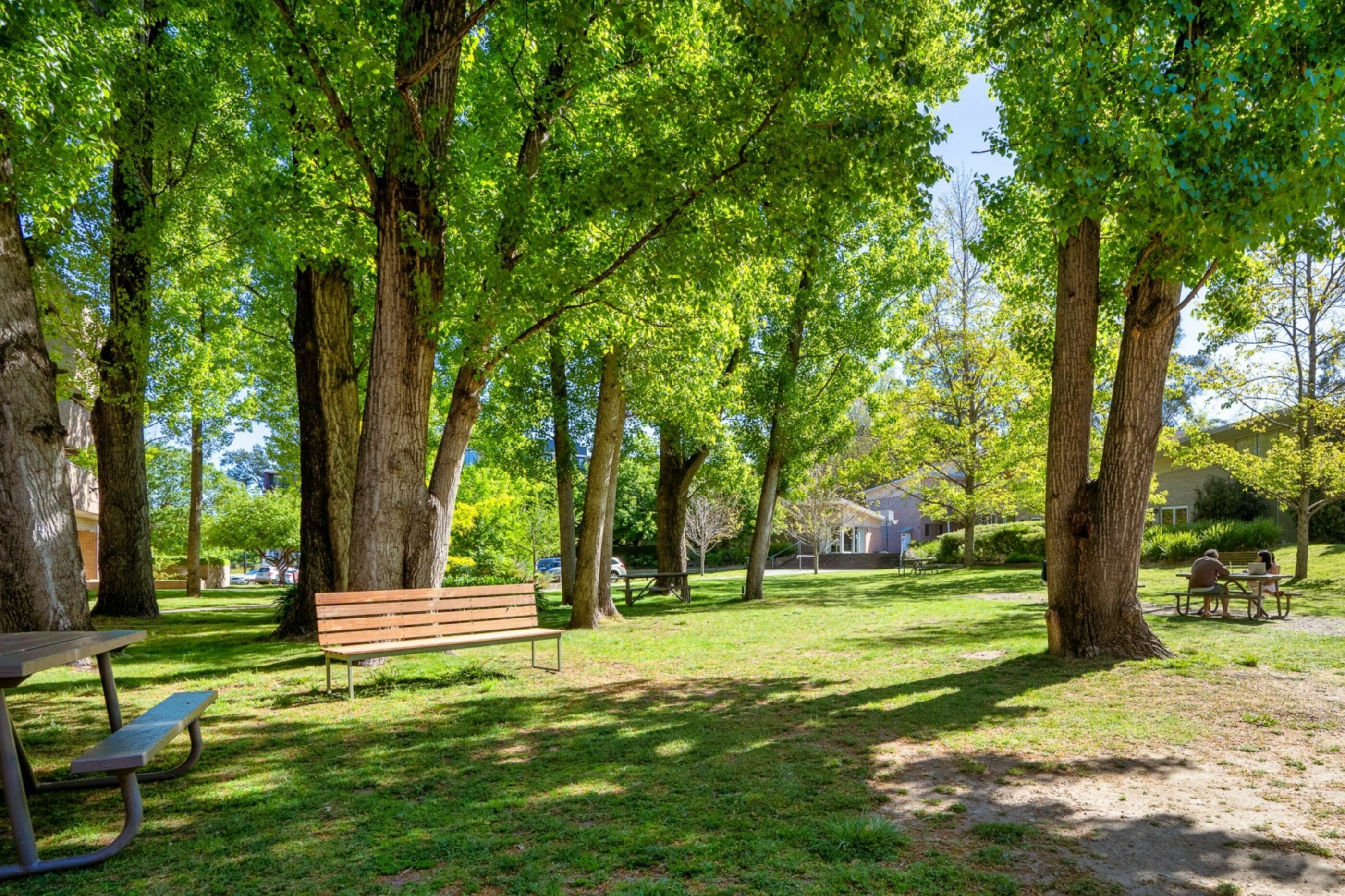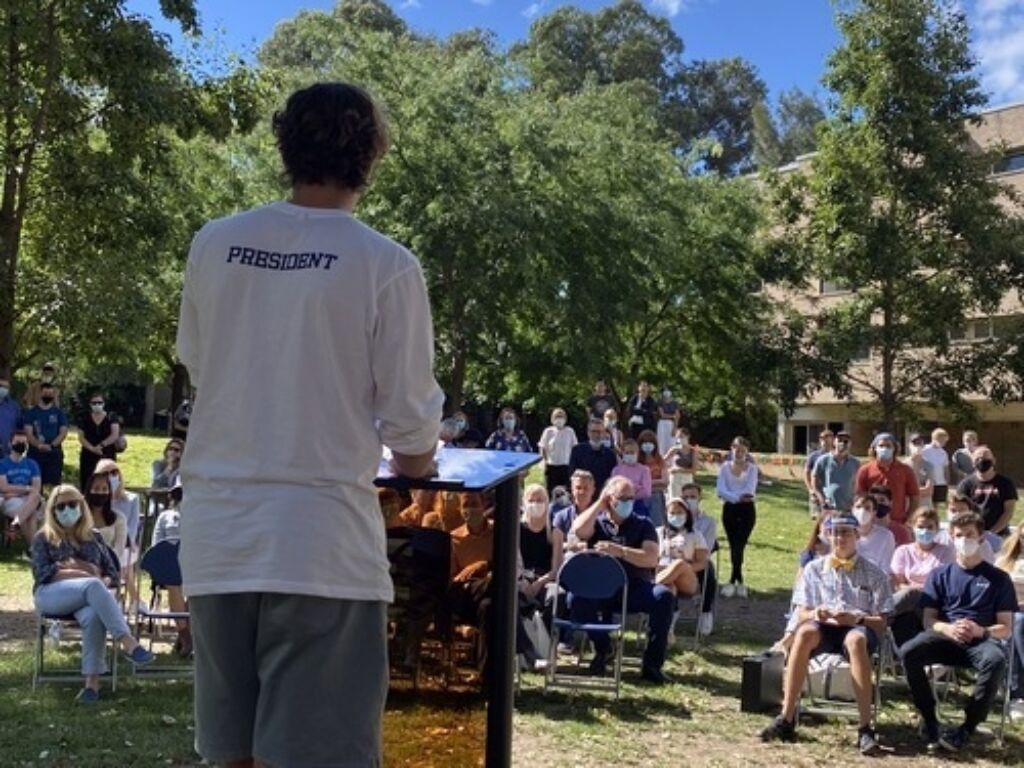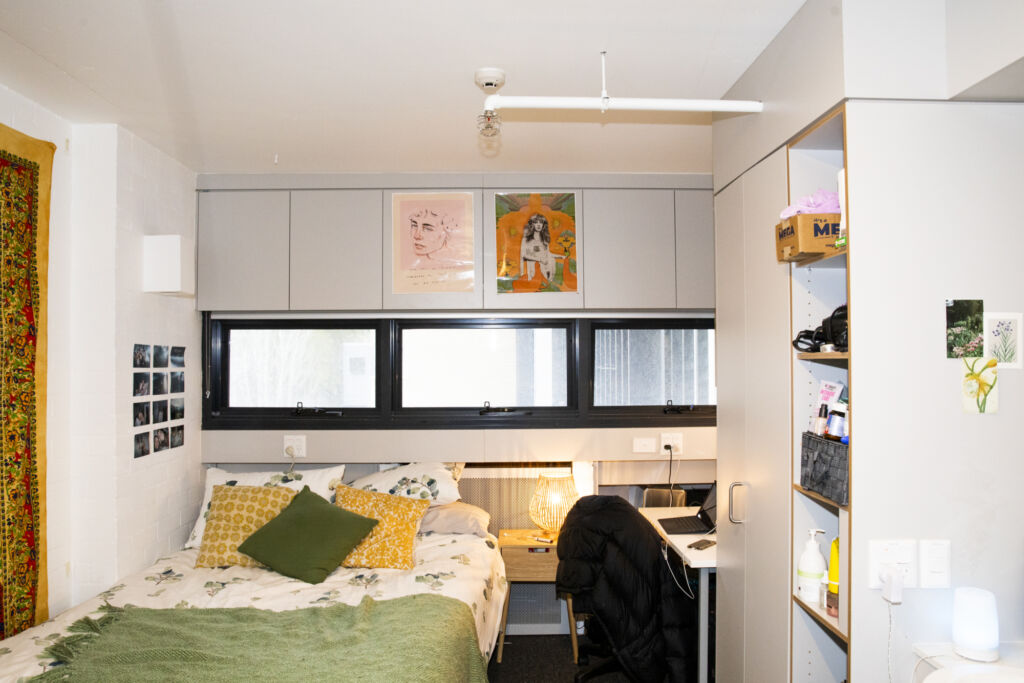Planting Trees
An article about the Burgmann College – indigo foundation Equality Prizes
- by alumnus and Honorary Fellow Robin Brown
It’s an unusual person who doesn’t think now and then about the value of their life. In this 21st century CE, we are living in the very early billions of all potential human lives. Scottish philosopher William MacAskill’s recent book “What we owe the future” suggests that we should measure the value of our lives in terms of “debt” to those to follow us. That’s not to say we should not devote energy to the well-being of those we are living with here and now and indeed our own. But we should spend some of our energy planting trees under whose shade we shall never sit.
The founders of Burgmann College, more than five decades ago, and the founders of the indigo foundation, more than two decades ago, were planting such trees. The College founders expected that it would be a community with a strong global humanitarian ethos reflecting that of its namesake. And they expected the people who had the privilege of being part of this community to share this benefit with the world. Indigo founders expected that their particular approach for the development of the least privileged communities in the world would inspire many others to share their benefits in support. Both groups of founders were right.
Now there are many ways of sharing one’s benefits. MacAskill says that "by far the most important decision you will make, in terms of your lifetime impact, is your choice of career". A great many Burgmann Alumni have been fortunate in having careers directly or indirectly about making things better for the less privileged. But, the way the world is, of course most of us cannot work in such jobs. Indeed, rather a lot of jobs have the revers effect and contribute to boosting further the wealth and privilege of the wealthy and privileged! Some jobs do that exclusively. But everyone can contribute somehow to a fairer and more sustainable future for the world. There really are few careers that cannot make some contribution and there are many that can make big contributions. There are few industries which cannot be improved in their contribution to this future. There are exceptions like the tobacco industry. And of course, besides our paid jobs there is much we can do by contributing our time and our skills voluntarily.
Many of us who have had the privilege of going to the ANU and the extra privilege of being Burgers have made or will make pretty good money. There is a question, though, about making lots of money. Some have suggested that every billionaire is a failure of public policy. It would not apply to all fortunes, but economists suggest that most are made by selling goods or services, including to the government, for more than they could be sold in a properly competitive market; thus more than production cost plus normal profit. They call this “economic rent” and don’t like it because it is inefficient, and it is also unfair as the consumer or citizen loses.
So as long as it’s by ethical means including avoiding economic rent, making money and aiming to give away what you don’t need is a valid way of contributing. Social justice philosopher, John Rawls, rightly said: “No one deserves his greater natural capacity nor merits a more favourable starting place in society” and economist Robert Frank’s work, shows that luck plays a very large role in making money. So sharing good luck with those of little luck has been makes sense. This applies equally to sharing the luck of having time to make a voluntary contribution of your skills and energy. Australian philosopher, Peter Singer has worked out just how much we don’t really need and can happily give away. Our experience is that he’s right and “happily” is the right word as there is psychological evidence that giving does add to our happiness. And of course, it’s a good thing to give some back to Burgmann College and some to organisations like the indigo foundation so more trees for future shade can be planted.
Now why the Equality Prizes? Well, whenever there is recognition of a contribution to any good cause it is about showing appreciation for that contribution, but pretty obviously it is about inspiring others. We prize sponsors are quite sure that the Burgmann College community doesn’t really need much inspiration to do more for a fairer more sustainable world, but we think that the prizes might just add a bit to the inspiration that is the essence of the College community and result in just a few more future shade trees.
Read more about our 2022 Equality Prize recipients here.


